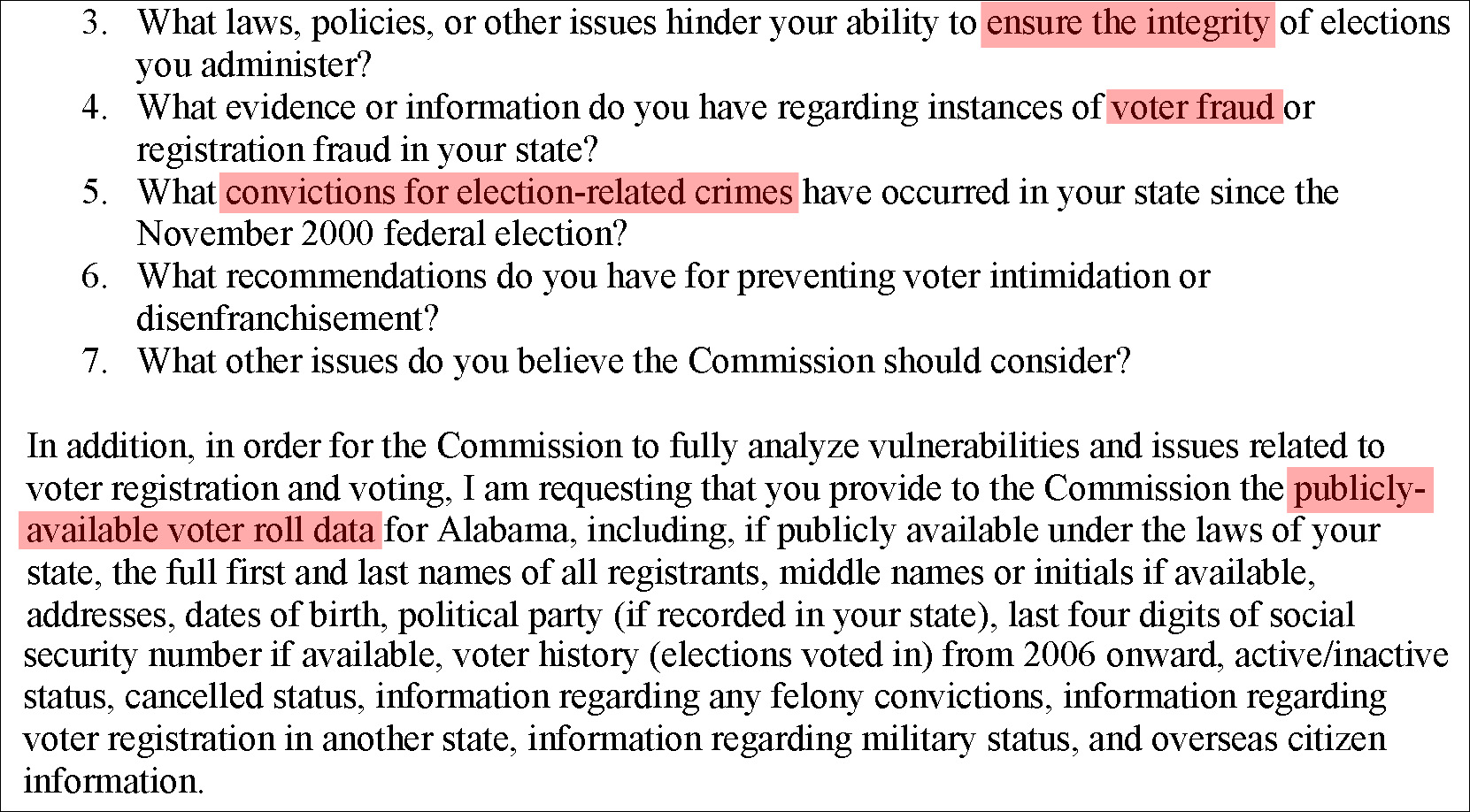Kris Kobach, the Kansas secretary of state who is obsessed with nonexistent voter fraud, is now the vice chairman of a White House commission charged with confirming Donald Trump’s claim that three million (or five million) fraudulent votes were cast for Hillary Clinton, and this is the only reason he lost the popular vote. This is a complete waste of time, but Kobach is eager to help. Yesterday he sent out this letter to every state’s secretary of state:

The progressive community is up in arms about this, as it should be, and several states have already told Kobach to pound sand. But this isn’t really a direct attempt to suppress black or Hispanic votes. Atrios is right about its purpose:
Kobach knows this game with databases. You program them to make soft matches — similar names, party affiliation — and then accuse everyone of having a match of having voted twice. Of course this almost never ever ever ever happens and certainly doesn’t happen enough to swing elections, but gotta lock up potential Dem voters any way you can.
Kobach doesn’t have the resources or the remit to pursue any fraud cases. What he wants to do is come up with a number for people registered twice. Or dead people who are registered. Or people registered at two different addresses. He will then claim that all of them are examples of fraud and announce that 23.7 percent of all registration is fraudulent. We’ve already seen this movie, and the sequel is bound to be the same.
In reality, none of this matters, and Kobach knows it. Double registrations invariably turn out to be different people who happen to have the same name and birthdate. Dead people invariably turn out to be…dead people. It just takes a while for them to be removed from the rolls. And people registered at two different addresses are just people who have moved. Their old registration will get purged eventually, but it doesn’t happen instantly. We go through this game in California every time a Republican loses a close election, and in every case the amount of actual registration fraud is zero.
And, of course, even the fake registrations (Mickey Mouse, Donald Drump, etc.) are just fake registrations. Nobody ever tries to vote with them. That’s the reason for this registration exercise in the first place. There’s basically no evidence of in-person voting fraud, so instead Republicans try to make the case for registration fraud. It’s all they’ve got.
A lot of registration databases in the United States really are maintained sloppily. We could use some improvements. But we’ll never get them as long as Republicans see them as a tool to demand voter ID laws that suppress Democratic voters.
UPDATE: Sorry! Kris Kobach is not the former Kansas secretary of state. Unfortunately, he’s still their secretary of state. The post has been corrected.















